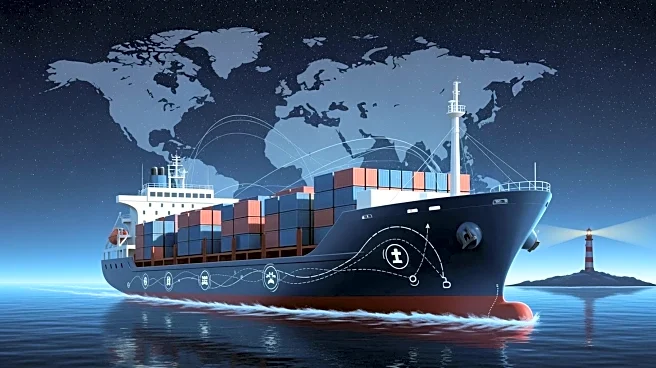What's Happening?
Shipowners are taking steps to mitigate the impact of new port fees imposed by the U.S. and China, targeting ships built, owned, or operated by companies in these countries. Pacific Basin Shipping, a major
operator in the dry bulk fleet, is transferring vessels to the Singapore registry and relocating strategic leadership to Singapore. This move aims to reduce exposure to tariffs and ensure compliance with ownership rules. Other companies, like Global Ship Lease and Seaspan, are also restructuring their operations to avoid fees, with Seaspan reportedly moving over 100 vessels to Singapore.
Why It's Important?
The new port fees represent a significant challenge for the shipping industry, potentially increasing operational costs and affecting global trade routes. By restructuring their fleets and operations, shipowners aim to maintain competitiveness and avoid financial penalties. These changes could lead to higher freight rates and increased market volatility, impacting global supply chains and trade dynamics. The industry's response highlights the complexities of international trade regulations and the need for strategic adaptation.
What's Next?
As shipowners continue to adjust their strategies, further guidance from U.S. and Chinese authorities on the interpretation of ownership rules is anticipated. The industry may see more companies relocating operations to jurisdictions like Singapore to mitigate exposure to tariffs. Additionally, ongoing discussions about the impact of these fees on global trade could lead to policy adjustments or negotiations between the U.S. and China.










